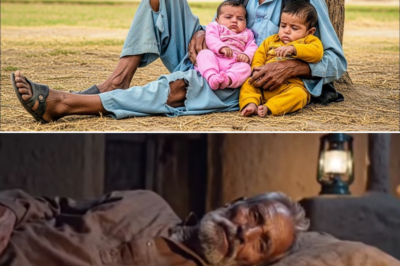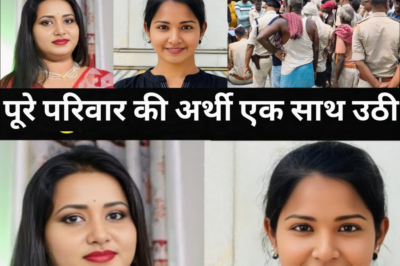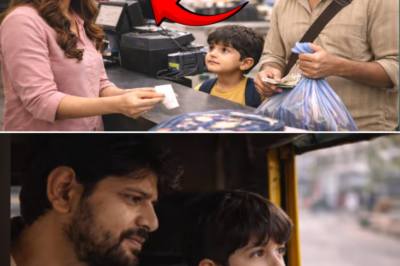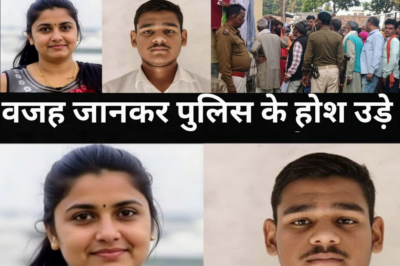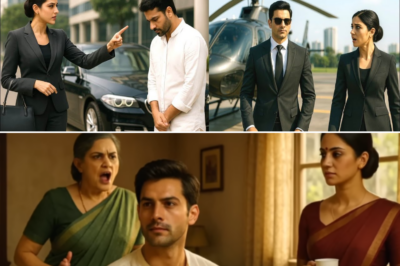Stirring Speech in Parliament: Jharkhand MP Raises Voice for Tribal Identity, Rights, and Centuries of Neglect

A passionate and moving speech echoed through the halls of Parliament as a Member of Parliament from Jharkhand brought the nation’s attention to the struggles and injustices faced by tribal and marginalized communities, raising urgent questions about identity, land, culture, and political neglect.
Tribal Identity and Cultural Recognition
The MP firmly opposed any talks of renaming Jharkhand or erasing its historical and cultural significance. “Jharkhand is our ancient name, a source of our pride and identity,” he said, stressing that name changes threaten not only property rights but also the foundation of cultural heritage. He argued, “If you erase a community’s name and history, you erase their existence.” He also highlighted how the tribal identity is tied not just to land but to traditions, dialects, and customs that are systematically ignored or erased.
Pain of Dispossession and Lack of Justice
Reminding the House of the sacrifices of tribals, Dalits, and minorities throughout India’s history—from freedom struggles against the British to the blood shed for the nation—the MP lamented, “Where will those people go?” He recalled how, even today, both in rural and urban contexts, marginalization persists. “Neither tribals nor Dalits get justice anywhere,” he said, criticizing successive governments for ignoring the grievances of the oppressed and failing to create inclusive policies.

Displacement and Resource Exploitation
The MP painted a bleak picture of Jharkhand’s immense mineral wealth contrast with widespread poverty. “There is no shortage of riches—coal, iron, gold, silver, uranium, and now even methane gas—but the people of the land are poorer than beggars because government policies have only displaced us, compensated us poorly, and given us no alternative.” He cited incidents of fires and accidents in coal mines, displacement from ancestral villages, and lack of proper rehabilitation as persistent issues.
Indigenous Customs, Religion, and Exclusion
Turning to traditions, the MP spoke with emotion about how tribals are forced to abandon their language, surnames, even cultural practices. “We are told to adopt customs that aren’t ours. Why should we be ashamed of our names, religions, or beliefs?” He lamented the slow erasure of Adivasi languages and practices, and questioned why tribals and Dalits are still treated as second-class citizens in their own country.
Political Marginalization and Demand for Action
He questioned why tribal societies are always used for political gain but rarely given real power or respect. “Why talk about a separate state only for business? We do not want a state just for business, we want it for our identity, our rights, our history.” He called for a nationwide gathering or seminar of tribal and marginalized community leaders to address shared challenges and propose collective solutions.
Urgent Call for Reforms and Justice
The MP forcefully called for government accountability for atrocities against tribals—demanding punishment for the guilty and the resignation of ministers responsible. He urged leaders to protect the heritage and dignity of all communities, and not just use cultural pride as a political slogan, as has been done with names like Mumbai and Uttarakhand.
Preserving Heritage and Unity
Concluding on a note of unity and warning, the MP reminded Parliament: “This is not just our fight. Hindus, Muslims, Christians, Dalits, tribals—everyone has shed blood for this country. If we fail to honor all those communities, if we let divisions fester for the sake of politics, we will repeat the mistakes of history.”
Closing Note: This speech—powerful, emotional, and richly woven with the lived realities of tribal India—calls upon the nation’s leaders to recognize and remedy the injustices faced by the country’s original inhabitants. It is a stark reminder that the progress of any nation lies in justice, dignity, and equality for its weakest and most marginalized.
For more in-depth coverage of India’s voices from the ground, stay tuned with us.
News
Baap Ne Betiyon Ko Akela Kyun Chhor Diya | Dada Ne Sahara Kyun Bana emotional islamic stories
Baap Ne Betiyon Ko Akela Kyun Chhor Diya | बेटियों का साया और पिता का पछतावा अध्याय 1: करीम बख्श…
चलती कार में फोन के फटने से हुआ बहुत बड़ा हादसा/
चलती कार में फोन के फटने से हुआ बहुत बड़ा हादसा/ दो फोन और एक बिखरता परिवार अध्याय 1: राजस्थान…
ऑटो वाला बेटे को लेकर मॉल पहुँचा… काउंटर पर बैठी कैशियर निकली उसकी तलाकशुदा पत्नी | फिर जो हुआ
ऑटो वाला बेटे को लेकर मॉल पहुँचा… काउंटर पर बैठी कैशियर निकली उसकी तलाकशुदा पत्नी | फिर जो हुआ रिश्तों…
देवर और भाभी दोनों के साथ हुआ बहुत बड़ा हादसा/वजह जानकर पुलिस और लोगों के होश उड़ गए/
देवर और भाभी दोनों के साथ हुआ बहुत बड़ा हादसा/वजह जानकर पुलिस और लोगों के होश उड़ गए/ सलेमपुर का…
पति को ड्राइवर समझ ताने मारती थी — जब हेलिकॉप्टर से उतरा, तो होश उड़ गए|
पति को ड्राइवर समझ ताने मारती थी — जब हेलिकॉप्टर से उतरा, तो होश उड़ गए| छद्मवेशी सम्राट: अपमान की…
पत्नी को शर्म आती थी पति से… लेकिन सच्चाई सामने आई तो सब रो पड़े |😭 Emotional story
पत्नी को शर्म आती थी पति से… लेकिन सच्चाई सामने आई तो सब रो पड़े अदृश्य कवच: एक रक्षक की…
End of content
No more pages to load

